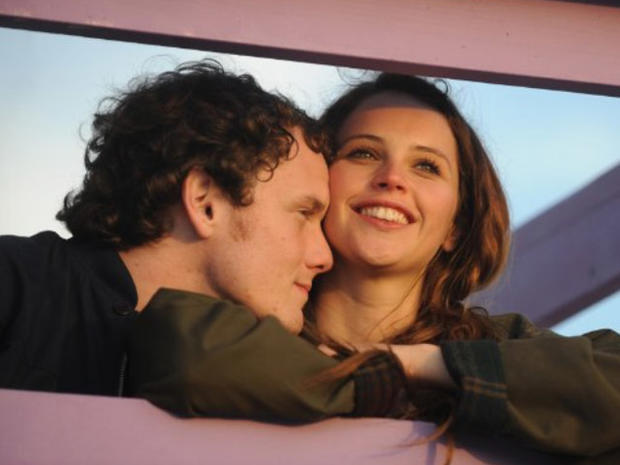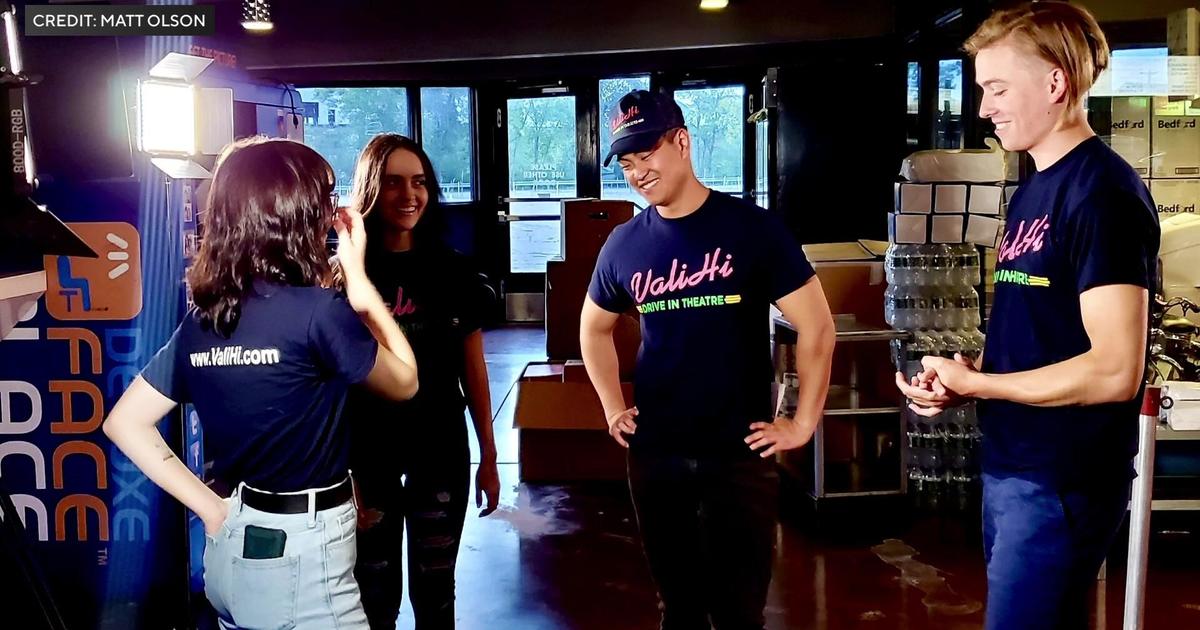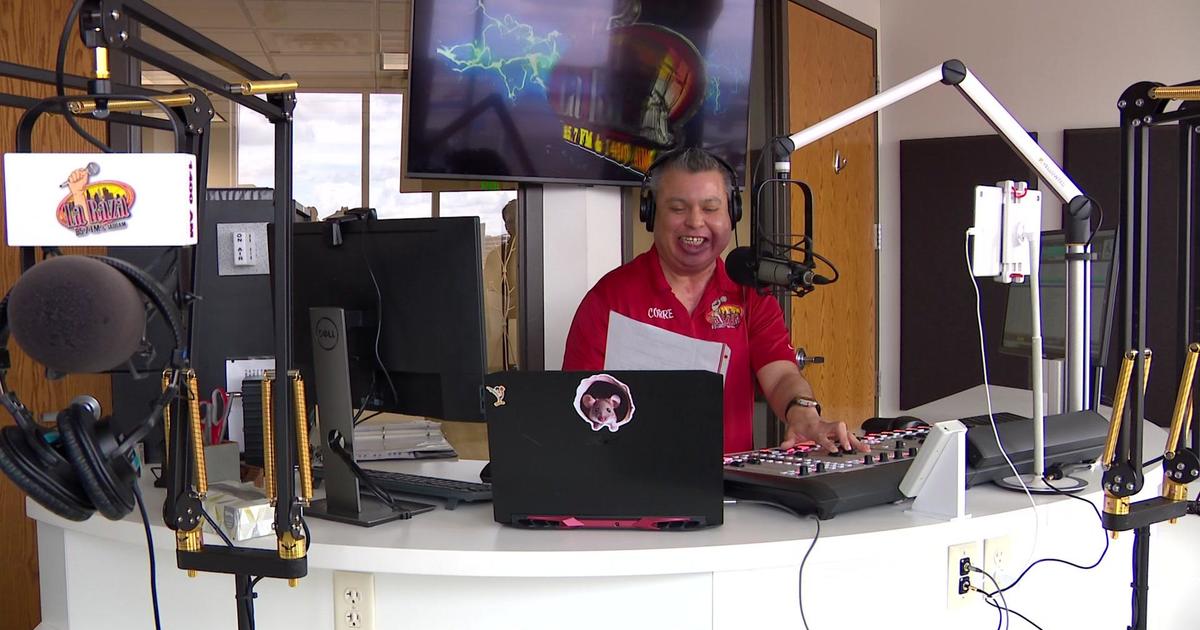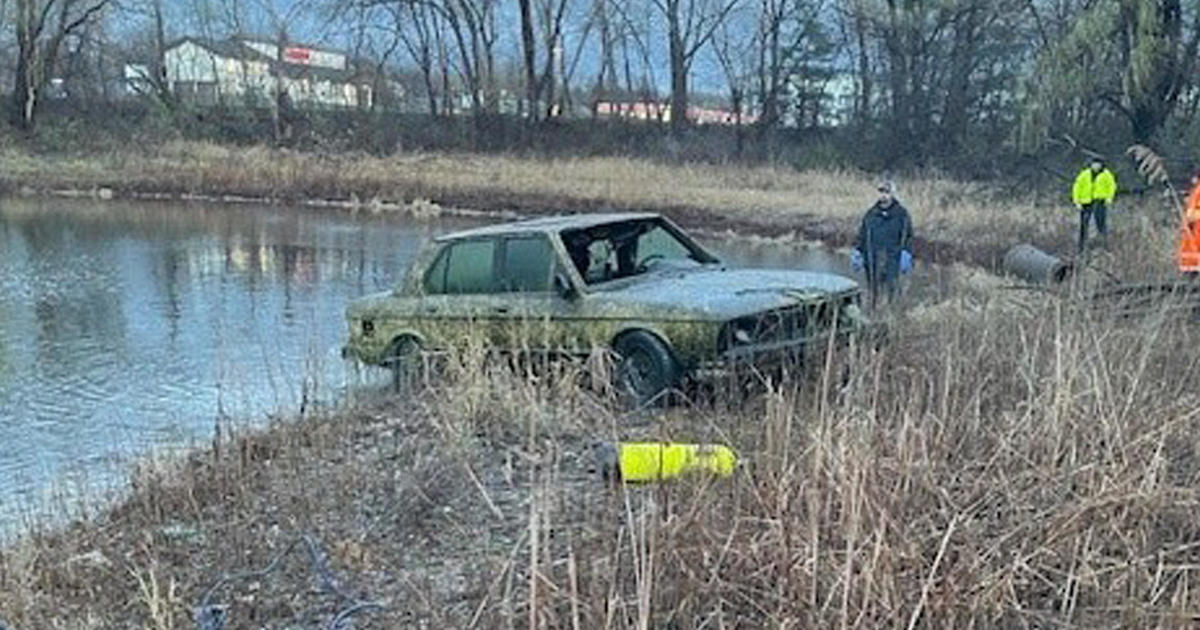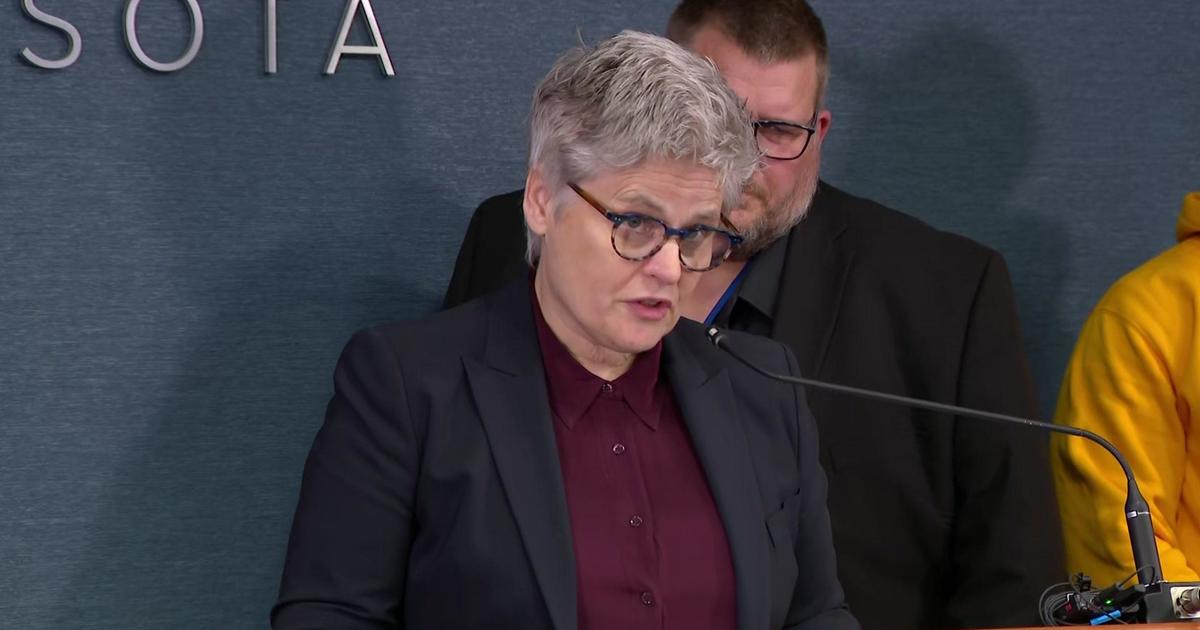Movie Blog: Interview With 'Like Crazy' Star, Director
You know you've come a long way when you go from making a movie called Douchebag to making a movie that wins top awards at the Sundance Film Festival. But that's the story so far for writer-director Drake Doremus, whose new film Like Crazy won the grand jury prize as well as a special jury prize for lead actress Felicity Jones' performance at Sundance. (The movie also, incidentally, won an award as the best feature at last month's Twin Cities Film Festival.)
Doremus's film details the trials and tribulations of a pair of young lovers who can't seem to get their post-collegiate ducks in a row to start what should, so they believe, be their new life together. In a twist of fate, it's actually the intensity of their passion for each other that throws a wrench into their plans. You see, Anna (played by Jones) is British, and is attending school in the states on a student visa. Rather than go home for the summer and return with a fresh new set of papers, Anna decides to stay in America with her beau Jacob (Anton Yelchin, of the Star Trek reboot and the Fright Night remake), breaking the statutes of her current visa.
She jets to the U.K. for what she thinks will be a quick jaunt, but when she returns back to this side of the pond, she is held up at the airport and forbidden to enter the country. So begins a saga that lasts for years of waning hope and alternate suitors and suitettes, as Anna and Jacob try to cope with an unbearably long-term long-distance relationship.
Though Like Crazy stops a few steps shy of outright mumblecore, Doremus keeps his canvas very narrow and tightly focused on his two main characters and their at best transitory ability to communicate their true feelings. It's an intimate movie that attempts to depict the difficulty to attain true intimacy. In fact, it spells that theme out in the very first scene, when Anna, presenting a paper to her class (which includes Jacob), talks about the shift away from "mass" media into the current "MySpace" world. Rather than share experiences, she argues, we're constantly setting up little mini-worlds of our own construct.
Be that as it may, I was given the chance last month to co-habitate a room at the Showplace ICON with Doremus and Yelchin for 15 minutes to discuss Like Crazy, which opens this weekend at Landmark's Edina theater. Here are some bits from our conversation:
-------
Eric Henderson: How did you come up with this concept?
Drake Doremus: Well, I've been in a long-distance relationship with somebody overseas from Los Angeles to London, so the story's very personal and very specific to me.
Henderson: That first scene, where Anna's talking about privacy and MySpace. I remember thinking, "I'm going to have to remember this scene." It feels like the theme for the whole movie.
Doremus: You're the first person that mentioned that! That's awesome. No one's ever brought that up.
Henderson: No way! So is that a good thing -- that we're all in our little boxes -- or is it an impediment?
Doremus: It's interesting. In a way, I feel like there's no constraints so it's hard to be creative. If there's no struggle, there's nothing to overcome. But at a certain point it sort of loses its luster. So there has to be something to keep it going, some sort of common goal to fight for. In a way, that's what keeps them together for so long in this film, because if they were together with no obstacles, who knows how long they would've been together.
Henderson (to Anton Yelchin): Did you feel those obstacles when you were making the movie?
Yelchin: Definitely this film was very all-consuming sort of experience, partially because we shot three six-day weeks, very long days. And then we went to London for a couple days. So it was a very tight, very short shoot. And we didn't ever really leave this world because it's so intimate, and the set was so intimate. So you are, in the best way, boxed into this world. In that room, though, the most exciting things happen.
Henderson: The performances felt so naturalistic, I had to wonder how much was scripted and how much was the result of improvisation.
Doremus: It was all improvised from a 50-page outline. It was pretty specific, though. It had a lot of scene objectives, subtext, backstory and such. What it didn't have was actual lines of dialogue. So that was the last piece of ammunition we worked on. The dialogue wasn't really the important thing, or it wasn't the main focus for us. Sometimes we'd get it right on the first take, some times it took a lot longer. But they were amazing being able to stay in a moment and explore that moment.
Yelchin: Our first day we shot the first date at college. So as we shot that, partially because there was awkwardness of the first date, and partially because there was awkwardness of the first day of the shoot, it took a little longer. But our last day of shooting was the scene where they have the passive-aggressive fight in London. And that was in one take. But it just felt right the whole time; you felt saturated in the experience, like you've really gone through a relationship.
Henderson: There's definitely a difference, I think, in the way the two alternate suitors for Anna and Jacob are depicted. I think clearly, Anna's other boyfriend in London [Simon, played by Charlie Bewley] is depicted as being the "wrong choice." But with Jennifer Lawrence [who plays Sam, Jacob's other girlfriend in L.A.], she might not be the "right choice," but she feels much more like the "right choice" for "right now."
Yelchin: Yeah, I think Jacob wishes that she was the right one. Because at that point, he's so exhausted by what he's going through with Anna that he wishes, as anyone would, that she was right. He just can't do it. He just doesn't feel the same way about her. And it's heartbreaking because Sam is perfect. In any other world, that would be a perfect person to be with, and the relationship just can't go there. It breaks his heart because he doesn't know what do do, but knows that he's not fully there for her.
Doremus: In a way it's the main story backwards, because it's two people trying to be together for many years and not being able to.
Henderson: So the title, Like Crazy … "Crazy" not being a bad thing.
Doremus: No, "crazy" like it's better to love and to pour yourself into something than to not try and to not be vulnerable. It's great to indulge in feelings at some times in your life.
Henderson: So love is making all the wrong choices for the right reasons.
Doremus: You got it!
